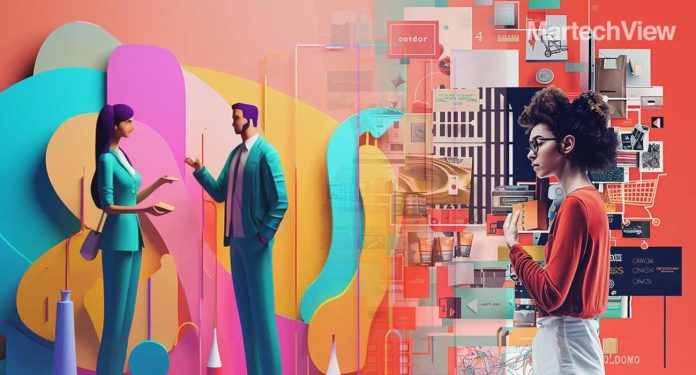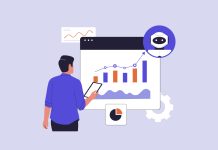Discover how B2B influencer marketing is gaining traction. Learn about this emerging field’s key trends, strategies, and success stories.
Only a few short years ago, “influencer marketing” was synonymous with viral dance routines, makeup tutorials, and lifestyle vlogs. However, times have changed, and the world of influencer marketing has evolved into a massive marketing ecosystem, redefining how brands engage with their customers.
The global market size has grown by more than 20x since 2016. Goldman Sachs recently estimated that the Creator Economy will reach $500 billion by 2027.
Until now, this growth has been primarily driven by consumer platforms in a B2C-centric way. B2B brands and platforms have not only been slow to embrace influencer marketing but have also consciously distanced themselves in the past.
However, as B2B brands begin to experiment more, push boundaries, and focus on connecting with audiences more humanly, influencer marketing is gaining traction in this new space. The era of B2B influencer marketing is well and truly here.
Creators Are Flourishing in a Changing B2B Landscape
B2B brands are experiencing a creative renaissance and are more willing than ever to try new, innovative formats and tactics. LinkedIn’s B2B Marketing Benchmark Report 2024 shows that 88% of CMOs advocate for bolder, more creative campaigns.
But where are they investing these creative dollars? Social media is the most used channel by marketing leaders (75%), and 1 in 3 say it is the most effective channel for meeting their marketing needs. Moreover, 61% of B2B leaders say they will increase spending on Influencer content shortly.
Jasmine Enberg, Principal Analyst at EMARKETER, a leading market research company that studies digital marketing trends, said the rise of B2B influencer marketing coincides with shifting B2B buyer demographics.
Also Read: Why Your Data Strategy Matters Now More Than Ever
“One of the biggest findings is that the B2B buyer is getting younger, getting more sophisticated. The same person who is scrolling through TikTok at night is involved in these purchasing decisions.
“[Historically] a lot of B2B content has been stale or boring. And now, as we’re seeing the B2B buyer get younger, B2B brands recognize they need to catch up and speak to the customer in the way they want to be spoken to. I think that is the big reason for the rise of influencer marketing within B2B.”
Furthermore, a recent EMARKETER report into social media trends found that Gen Zers are diversifying content on platforms like LinkedIn. Instead of just being a place for job updates and work anniversaries, Gen Z uses LinkedIn similarly to B2C platforms like Facebook and Instagram by sharing advice, stories, challenges, and insights, paving the way for creator content.
According to the report, brands like Intel and Hootsuite are hiring creators for LinkedIn-specific sponsored content. EMARKTER predicts sponsored content like this will see double-digit growth in the US over the next few years.
B2B Influencers Are Built Differently
While B2B marketers can learn a lot from their B2C counterparts, what works for B2C doesn’t always resonate with B2B audiences.
Generally speaking, B2C demands trendsetters and tastemakers regarding influencer marketing, whereas B2B requires credible expertise rooted in proven experience. B2C influencers are tasked with bringing a “halo of celebrity” to the brands they work with, while B2B influencers need to provide a “halo of credibility.”
So, what does a B2B influencer look like? They are thought leaders, subject matter experts, academics, business owners, content creators, analysts and journalists, and even a company’s employees or executives.
Also Read: Master Email Deliverability: A Comprehensive Guide
Most of the time, these B2B influencers have their in-built audiences and followers, but unlike in B2C, their overall audience size isn’t as important. B2B influence is less about numbers and more about reputation and gravitas, as Rahul Titus, Global Head of Influence at Ogilvy, points out:
“We talk about a spectrum of influence, and in the B2B space, the number of followers never matters. Some of the best influencers we work with in the space have 20 followers. But that’s okay because you can buy the reach.
“What you can’t buy is trust and authenticity.”
A recent report into the B2B influencer landscape from marketing agency TopRank sums it up nicely: With the right amount of zeroes on the check, your B2B brand could work with anyone from Beyoncé to Brad Pitt. But would your target audience take Queen Bey’s SaaS supply chain solutions recommendations?
TopRank also asked brands what the most important qualities are in choosing a B2B influencer, and “size of audience” ranked fourth. Topping the list were “our audience sees them as trustworthy,” “relevance of audience,” and “professional credentials.”
Capitalizing on This ‘Explosion of Opportunity’ in B2B
It’s safe to say that B2B brands have been slow to embrace influencer marketing, but the momentum in this space is getting harder to ignore.
Neil Waller, co-founder and co-CEO of creator management company Whalar Group, said we’re seeing an ‘explosion of opportunity’ in the B2B influencer space right now, and smart brands are ready to capitalize on it.
“When we started eight years ago, less than 10% of the creators we worked with were full-time. So, for most people, it was a side hustle. Last year, we had 13,000 creators on our books, and 95% were full-time, 70% had a manager or agent, and 20% had at least one full-time employee,” said Waller.
“We’re seeing an explosion of storytellers in this B2B space. It is exciting to see.”
Waller continued: “I think maybe in the past with brands, it was a case of: we’re not going to tell the company story, we’re going to tell the story of the product.”
Also Read: Gmail Tabs: Still a 2013 Problem?
“Now, consumers want to know the stories of the company, the people, and the personalities. I always go back to the example of when Daniel Ek (Co-founder and CEO of Spotify) posted on LinkedIn, it outperformed every post that Spotify had ever posted.” Waller added. “People want to hear from a person, not a company. This is where consumerism and behavior have shifted…it is a missed opportunity if you are not engaging.”










